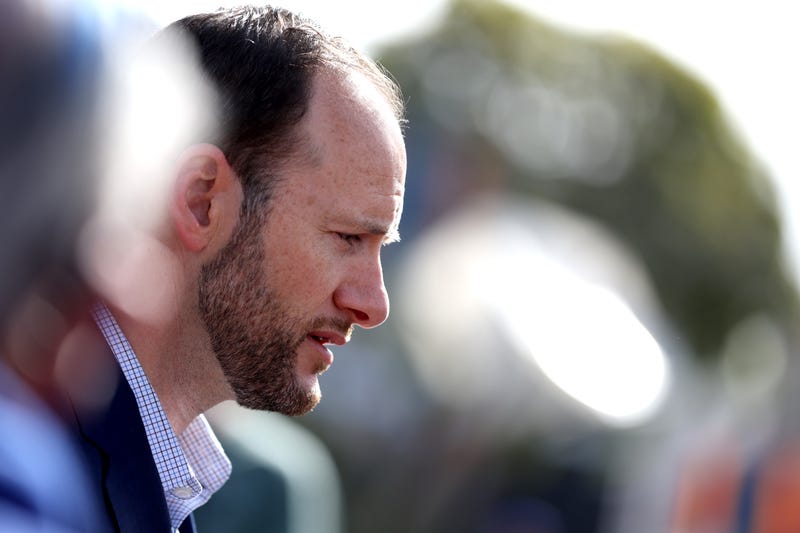
SAN FRANCISCO (KCBS RADIO) – San Francisco District Attorney Chesa Boudin will be removed from office after the city voted to recall the progressive prosecutor on Tuesday night, according to an Associated Press projection of the race.

With 45% of ballots counted as of Tuesday night, 61.3% of voters opted to recall Boudin. Meanwhile, 38.7% voted against the measure.
San Francisco Mayor London Breed will appoint Boudin's successor 10 days after the Board of Supervisors certifies Tuesday's election results. Breed's appointed successor will then be on the ballot in the November general election, unless city voters passed Proposition C – which bars mayoral appointments following a recall from running again – on Tuesday night.
Boudin first assumed office in January 2020 after narrowly winning election in the third round of ranked-choice voting the previous November. He would've been on the ballot again next November.
The former deputy public defender ran promising criminal justice reform, assuming office as one of a number of district attorneys in some of the country's biggest cities – including Boston, Los Angeles and Philadelphia – vowing to fight mass incarceration and decriminalize homelessness and poverty.
Amid the backdrop of the COVID-19 pandemic, Boudin bore the brunt of the blame from San Franciscans concerned about rising crime. A poll commissioned by the San Francisco Chamber of Commerce – which backed recalling Boudin through its political action committee – showed last month that 83% of San Franciscans said crime had gotten worse, and 55% of city residents said crime and public safety are a major issue.
An April San Francisco Chronicle analysis of police data showed overall reported crimes had decreased since 2019. Property crime rates had increased to pre-pandemic levels – keeping with similar trends throughout the state and across the country – and violent crime rates had dropped lower than any point since 1985. Murders and shootings had increased, although less dramatically than other major cities during the same time period.
The recall qualified for the ballot last November, about three months after a similar effort from a former Republican mayoral candidate failed to gather enough signatures. Recall proponents portrayed their movement as a grassroots effort, touting opposition to Boudin from within his own party.
San Franciscans for Public Safety Supporting the Recall of Chesa Boudin, the richest of four political action committees seeking to oust him, said in a report last month that 83% of its "more than 1,000" donors were Democrats. Eighty percent, the committee said, had given no more than $250.
But recall proponents enjoyed a significant spending advantage in what became an expensive election, in large part because of the involvement of outside groups. Of the nearly $10.5 million spent on the recall measure, political action committees gave $5.5 million to pro-recall groups, according to city ethics commission data.
One committee, Neighbors for a Better San Francisco Advocacy, gave more money to three pro-recall groups ($4.7 million) as of June 1 than all of the anti-recall groups combined had raised ($3.3 million). Excluding committee spending, anti-recall groups raised about $2.6 million while pro-recall groups raised approximately $1.7 million.
This is a developing story. Check back for updates.
Follow KNX News 97.1 FM
Twitter | Facebook | Instagram | TikTok

